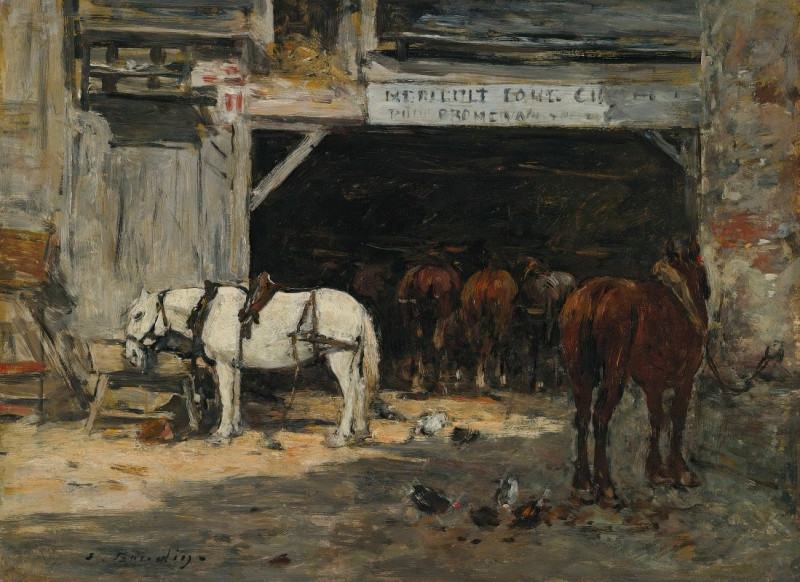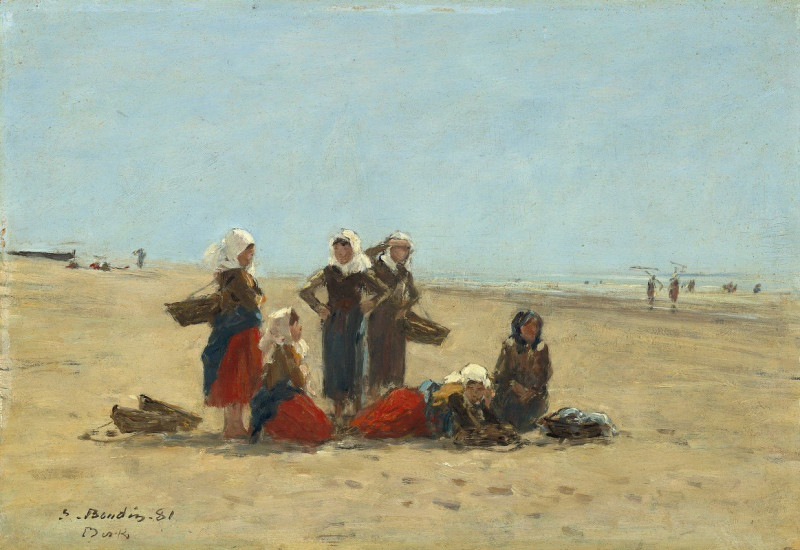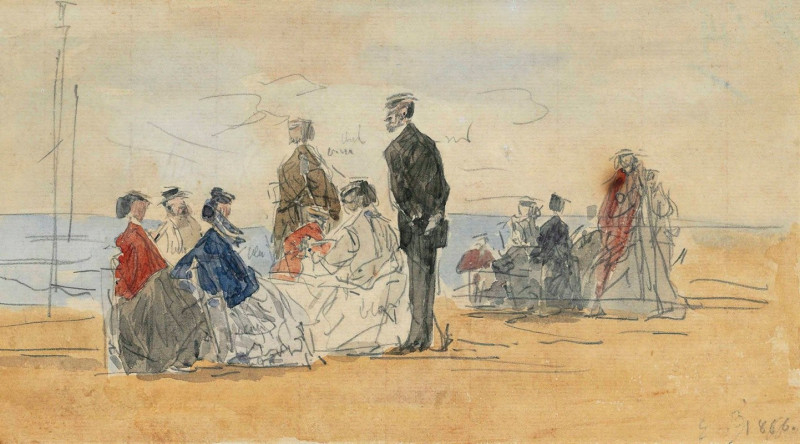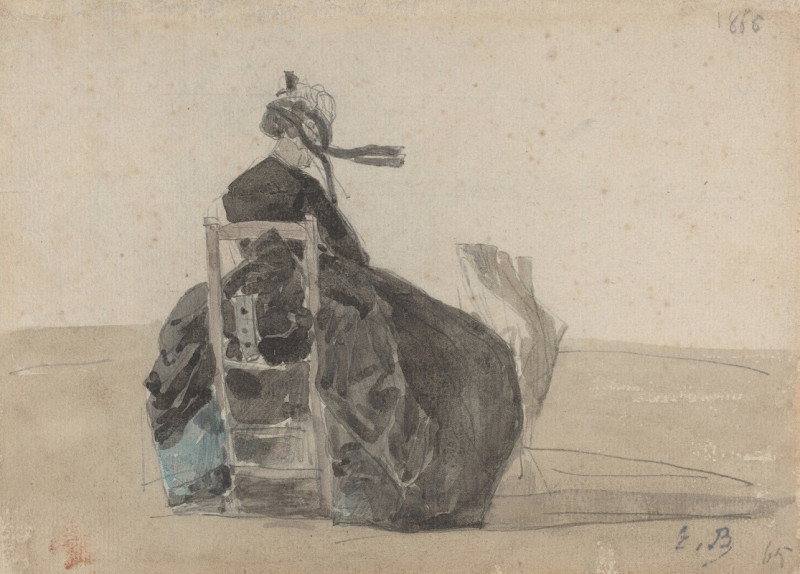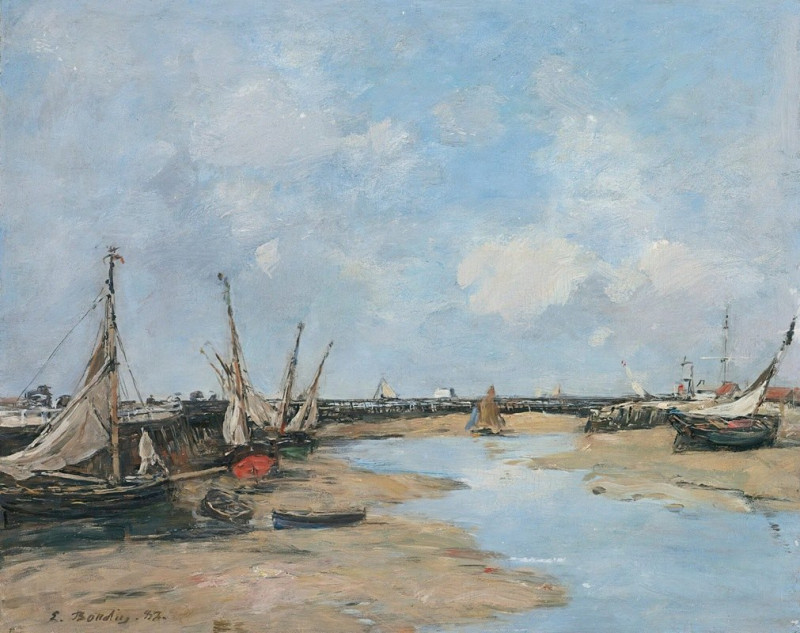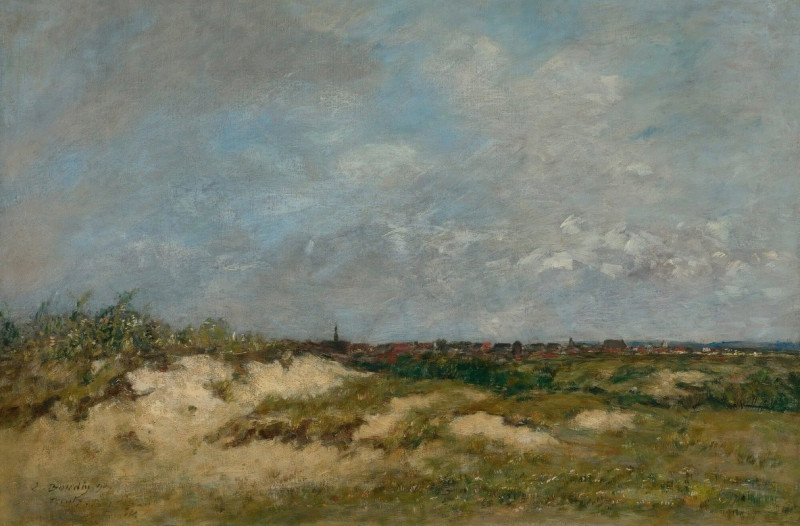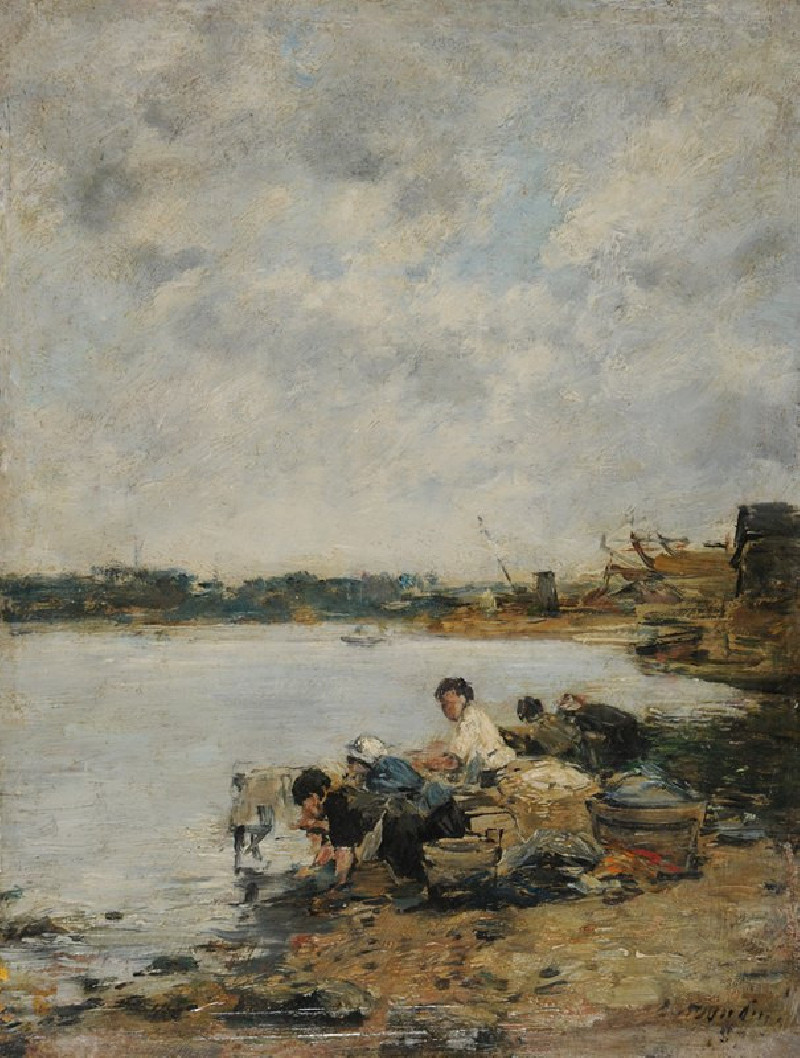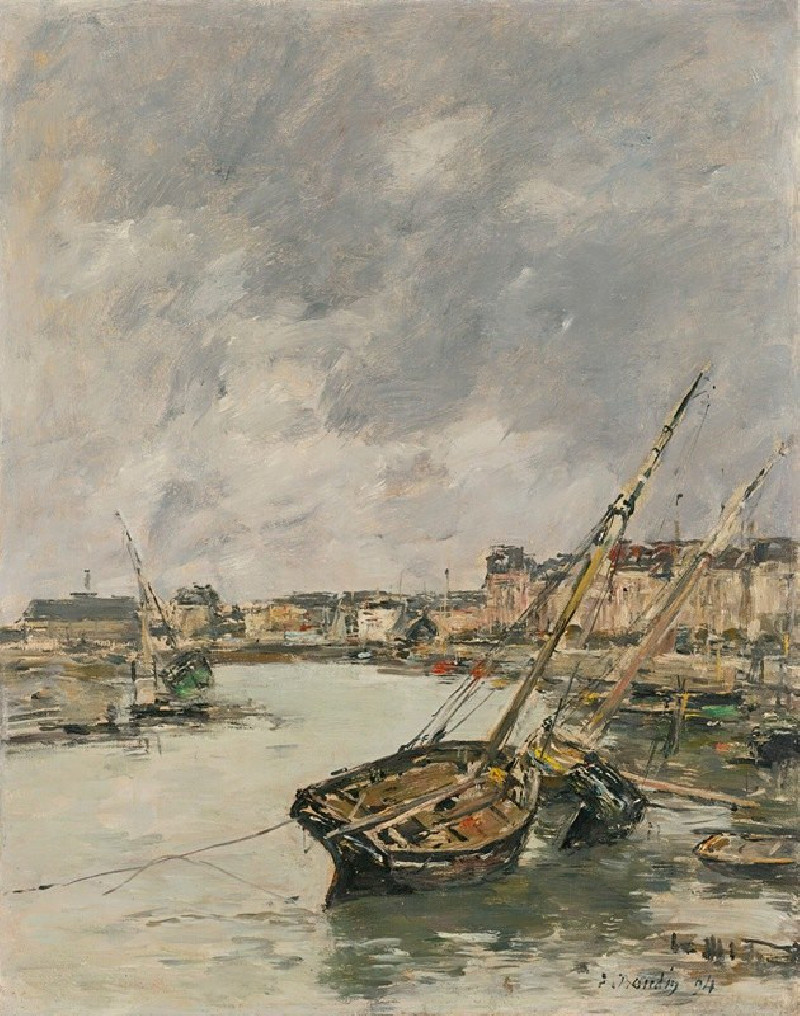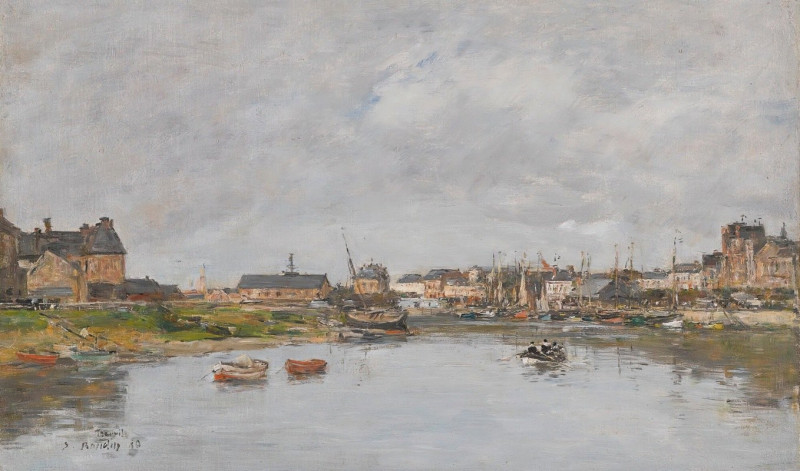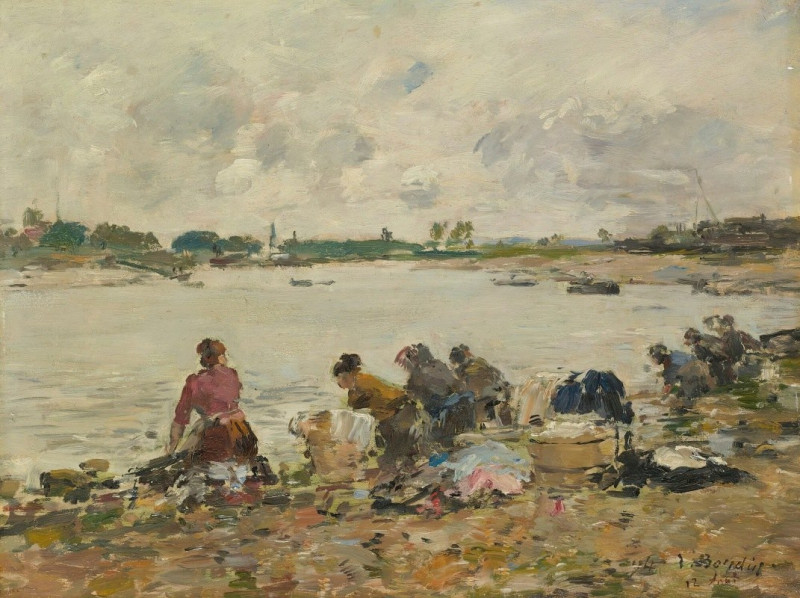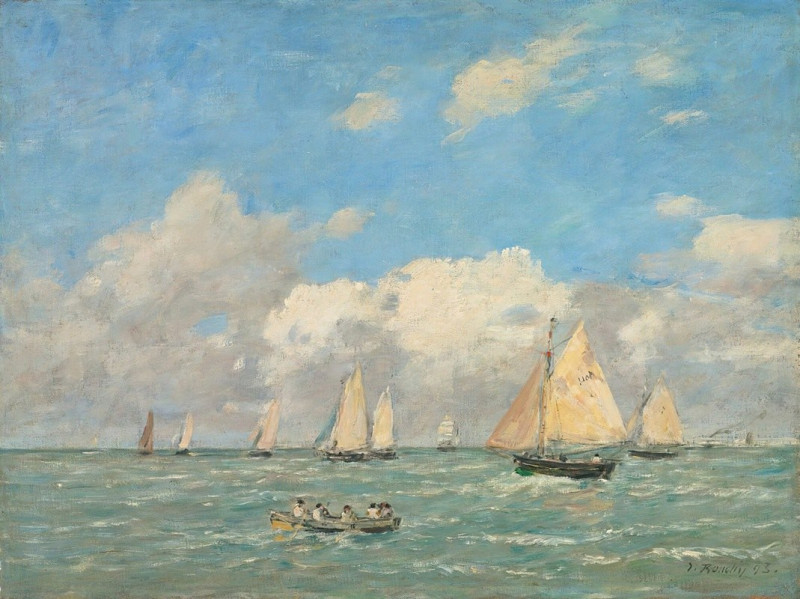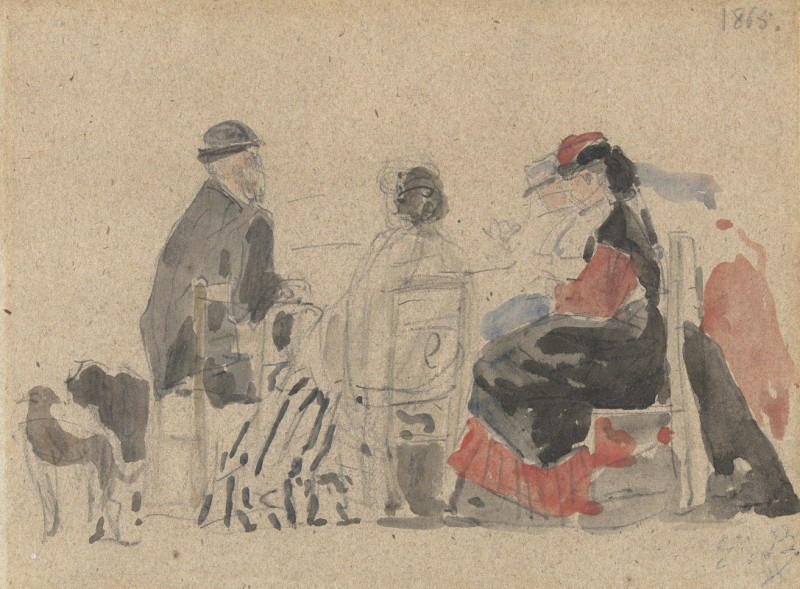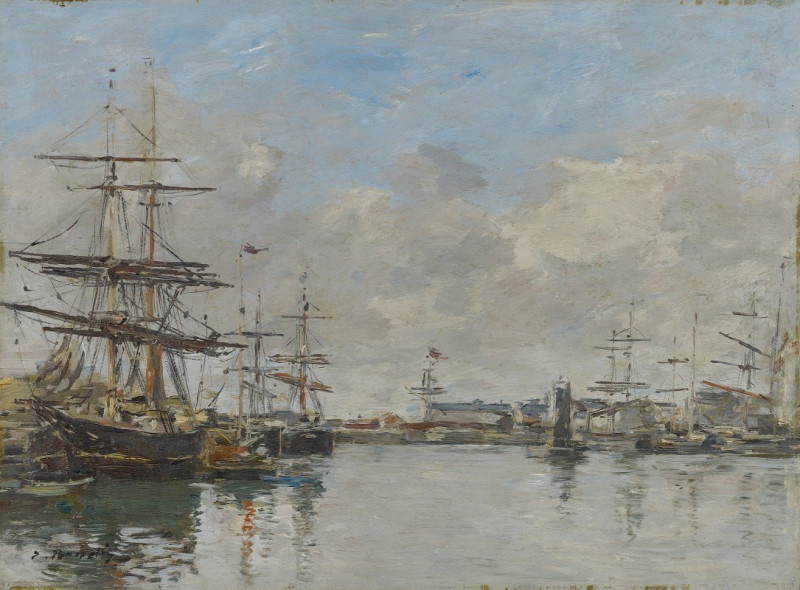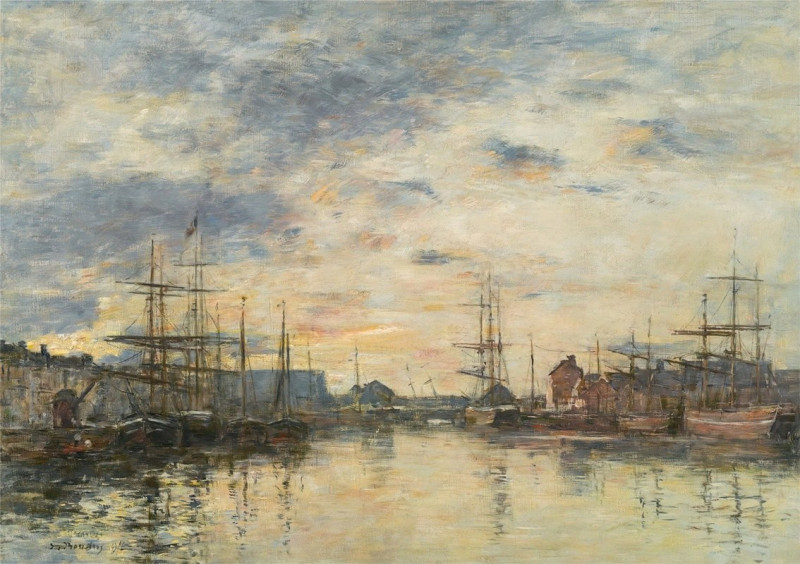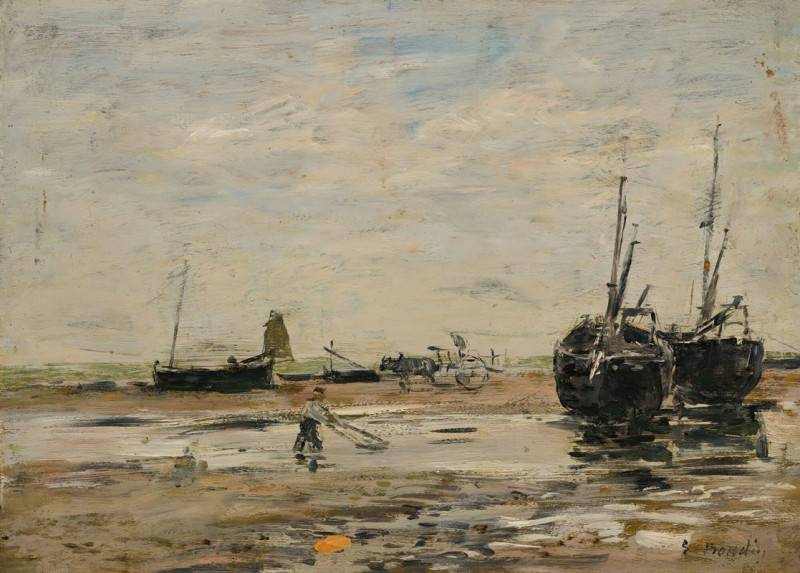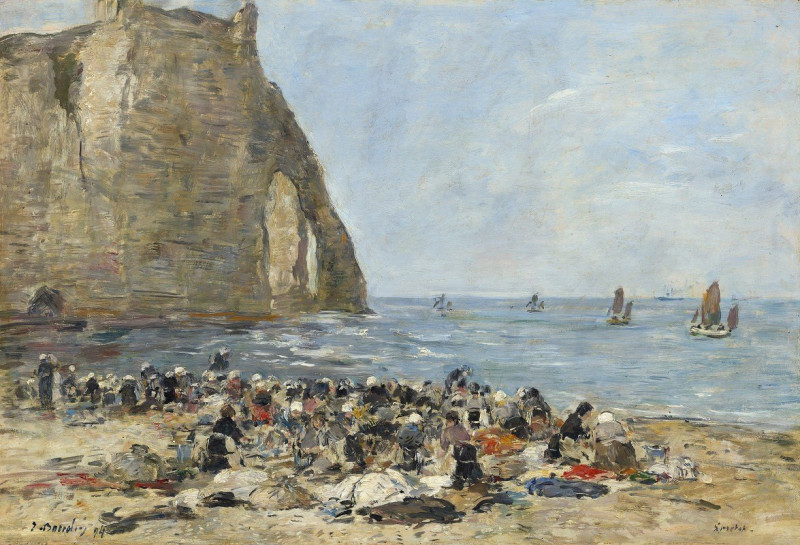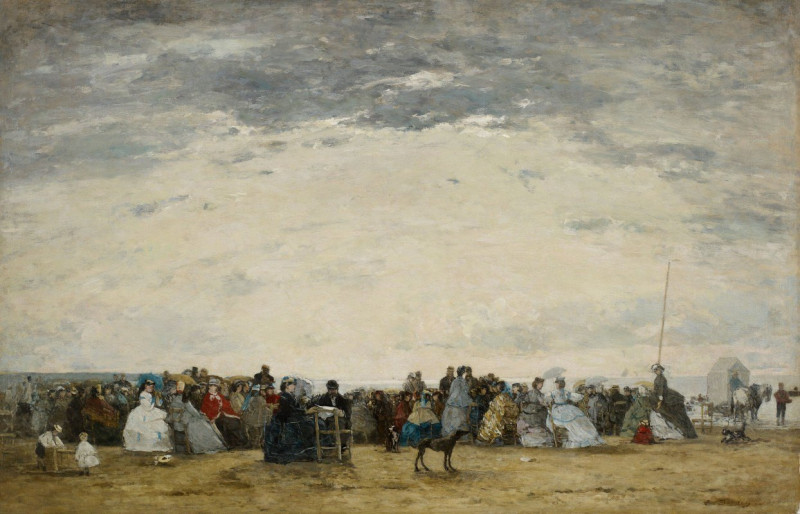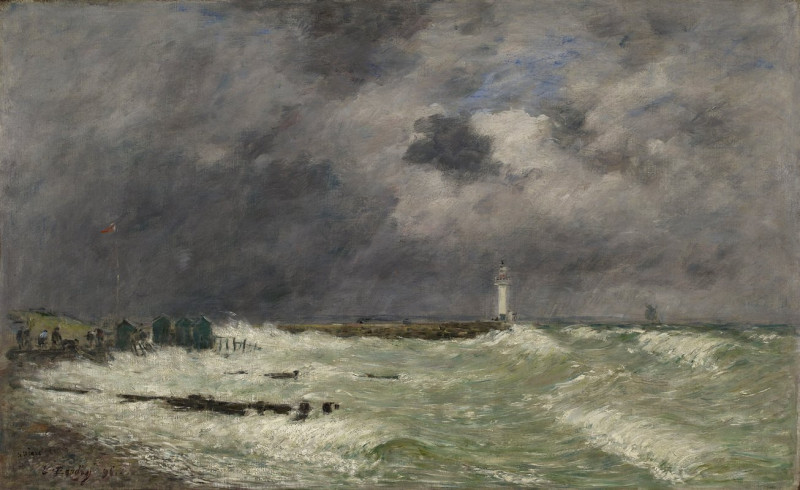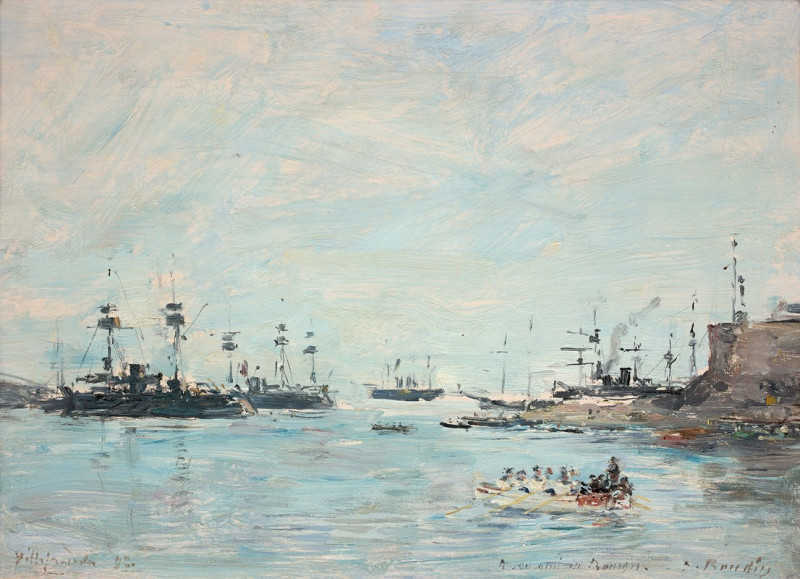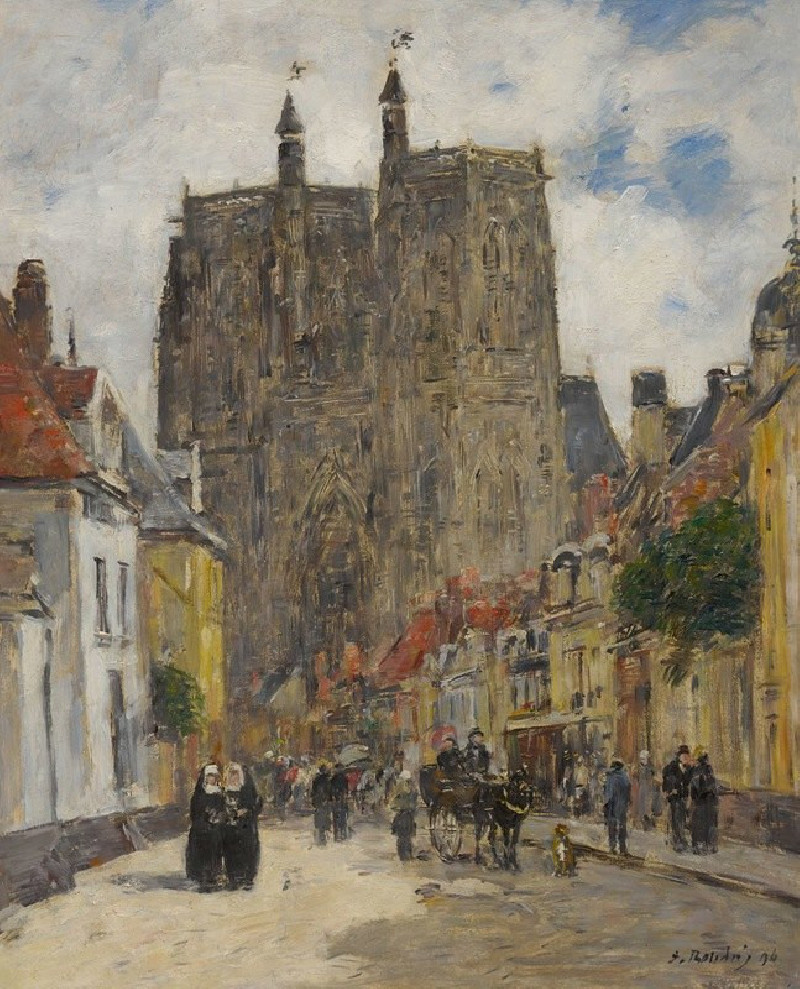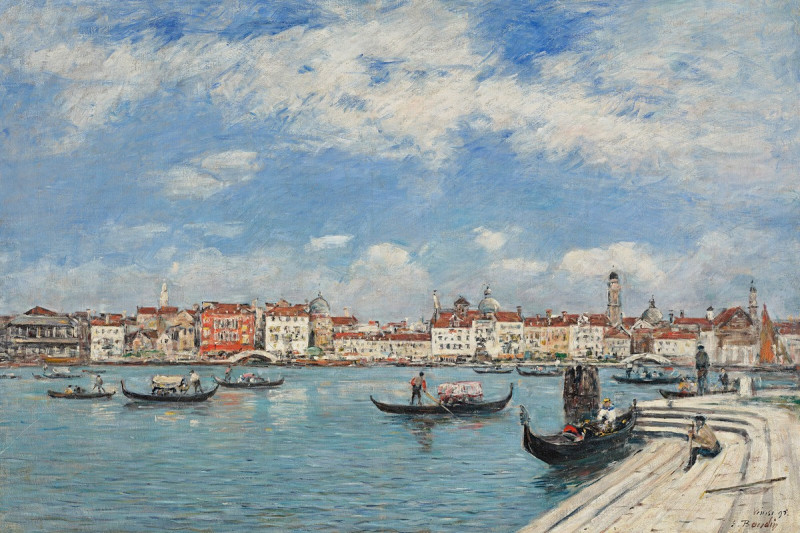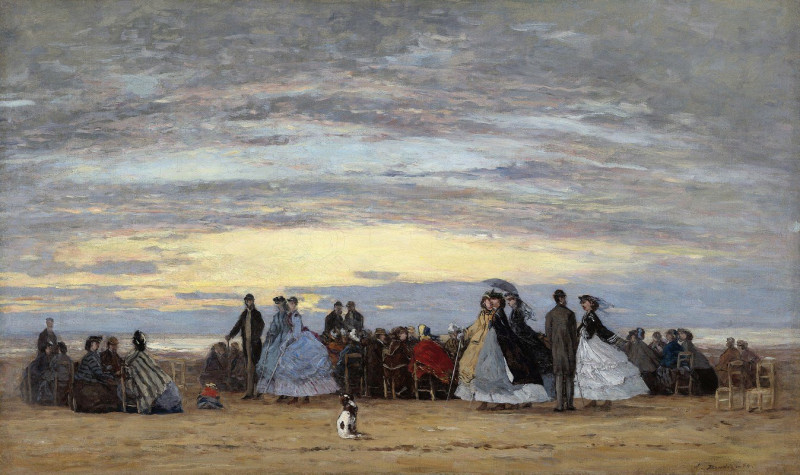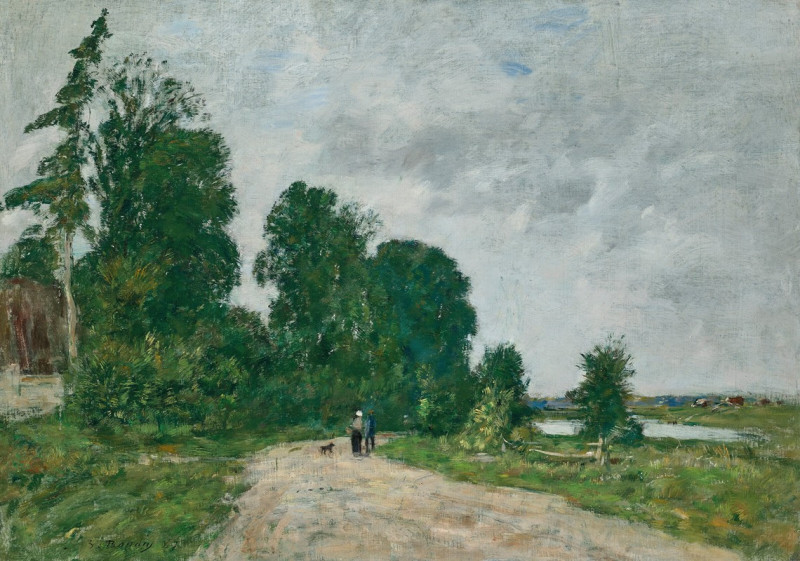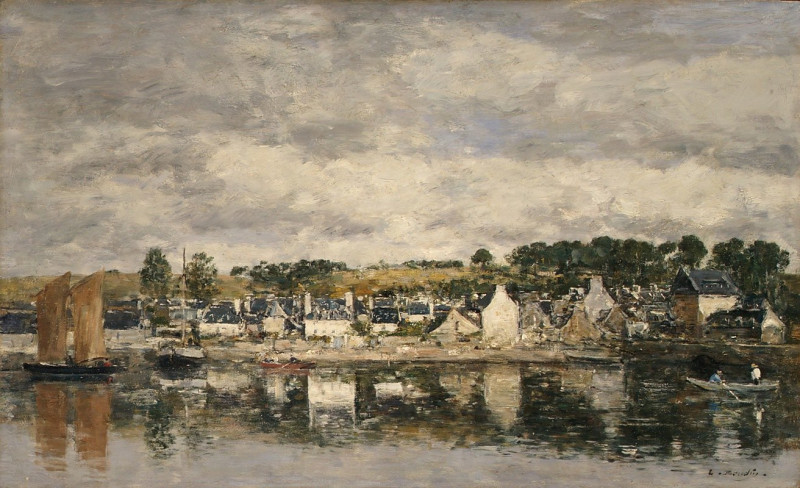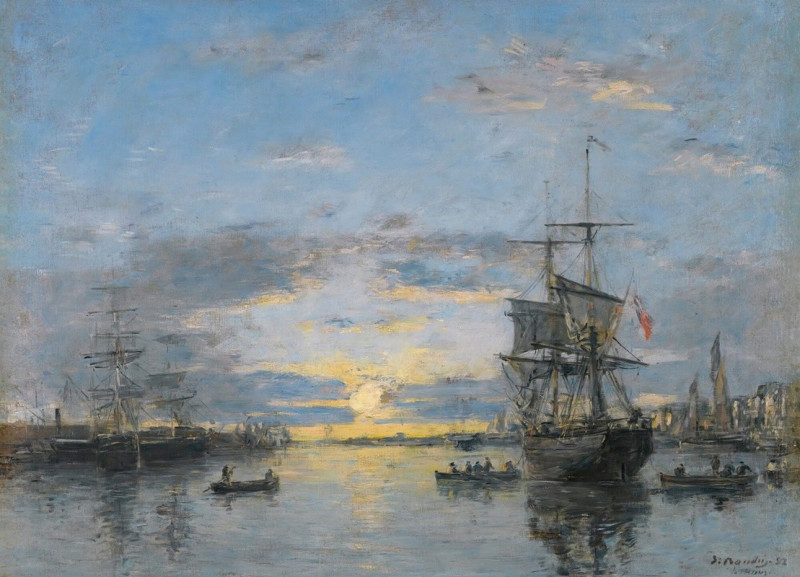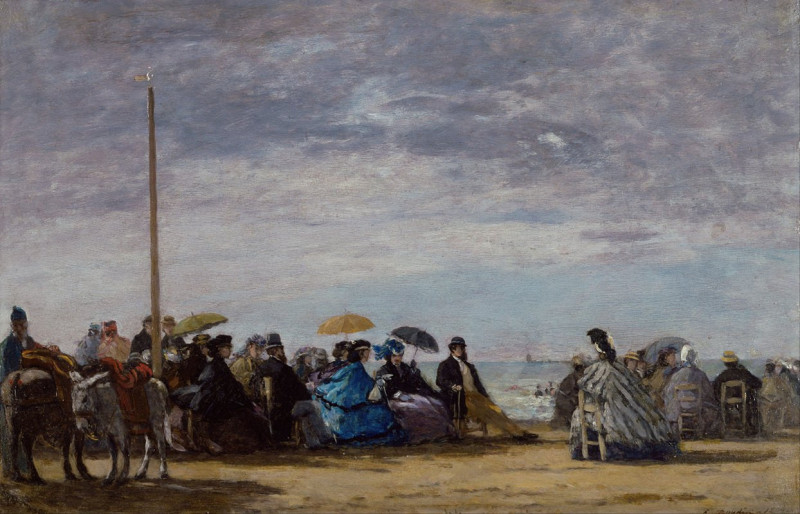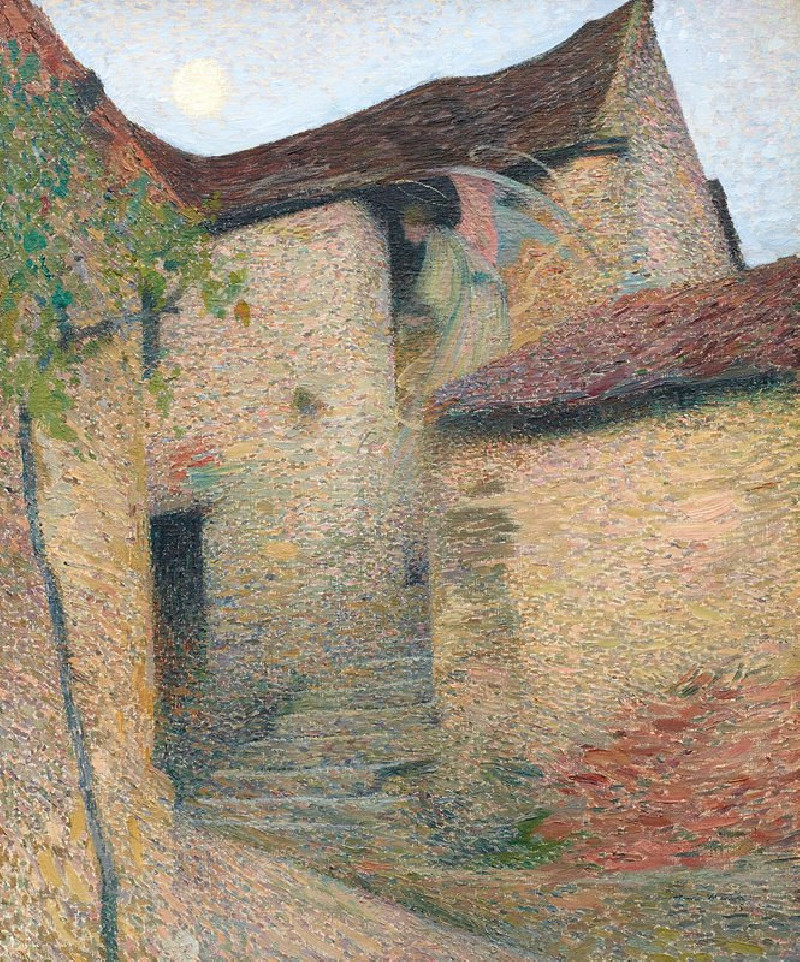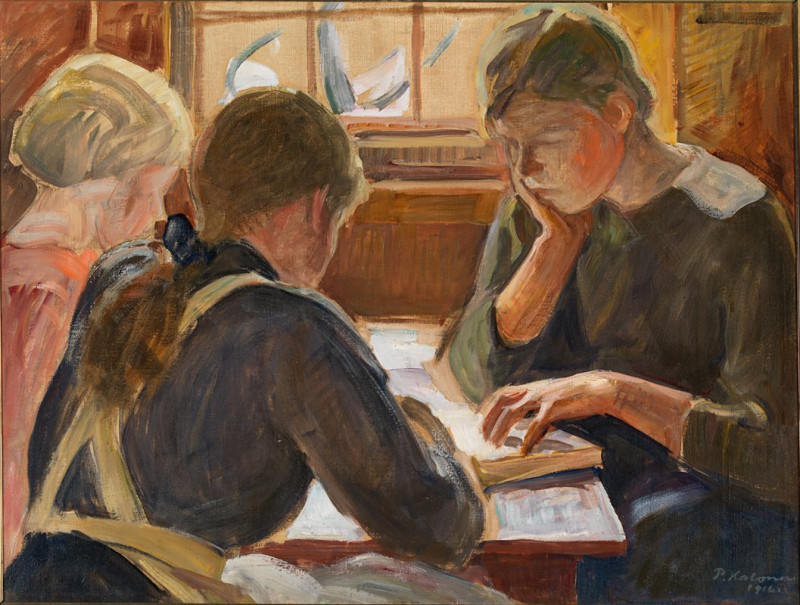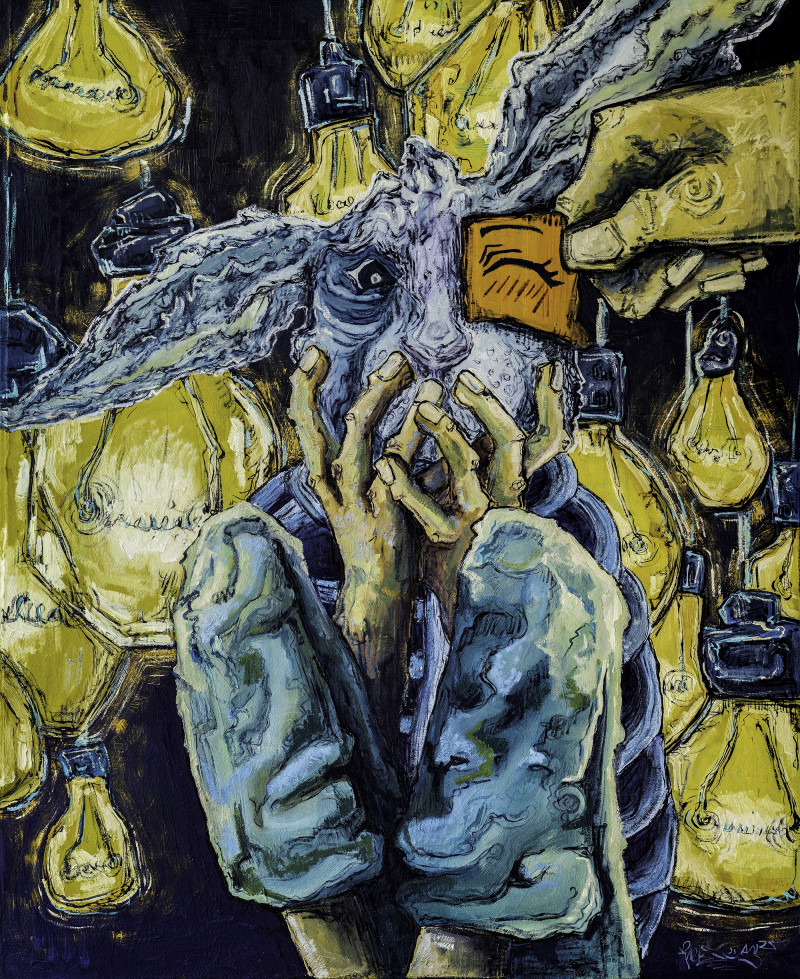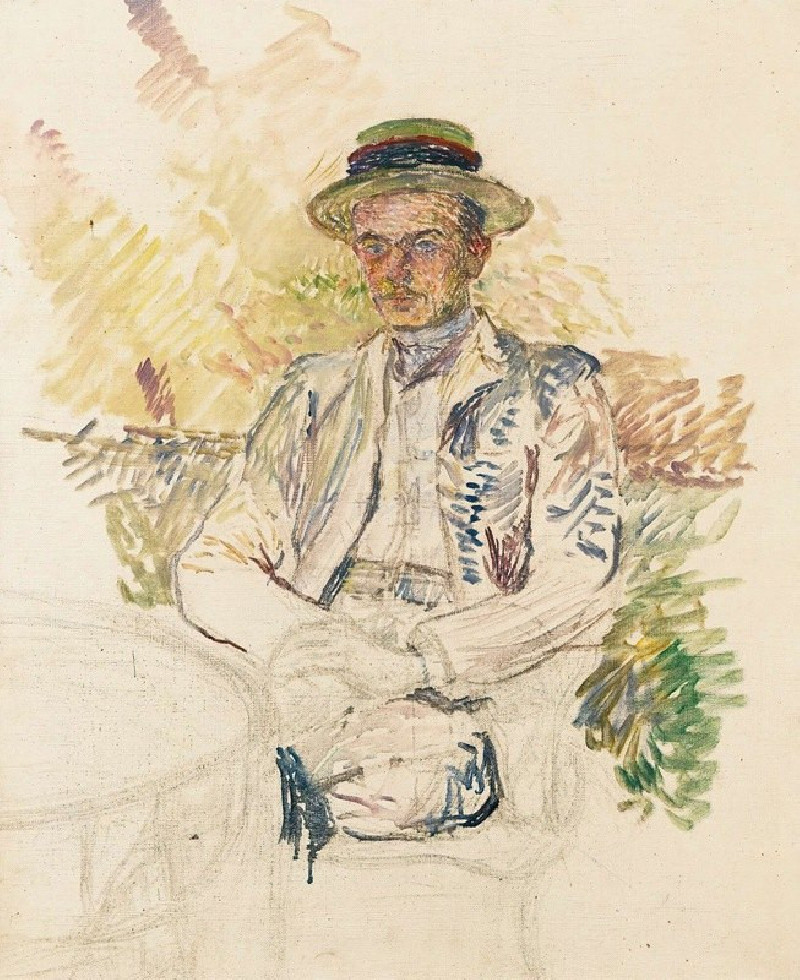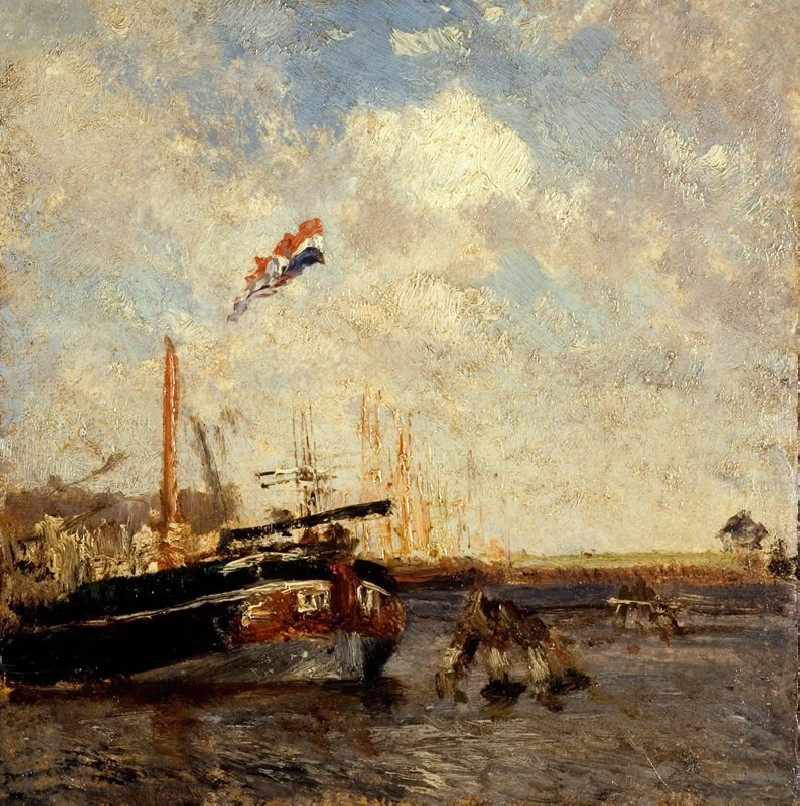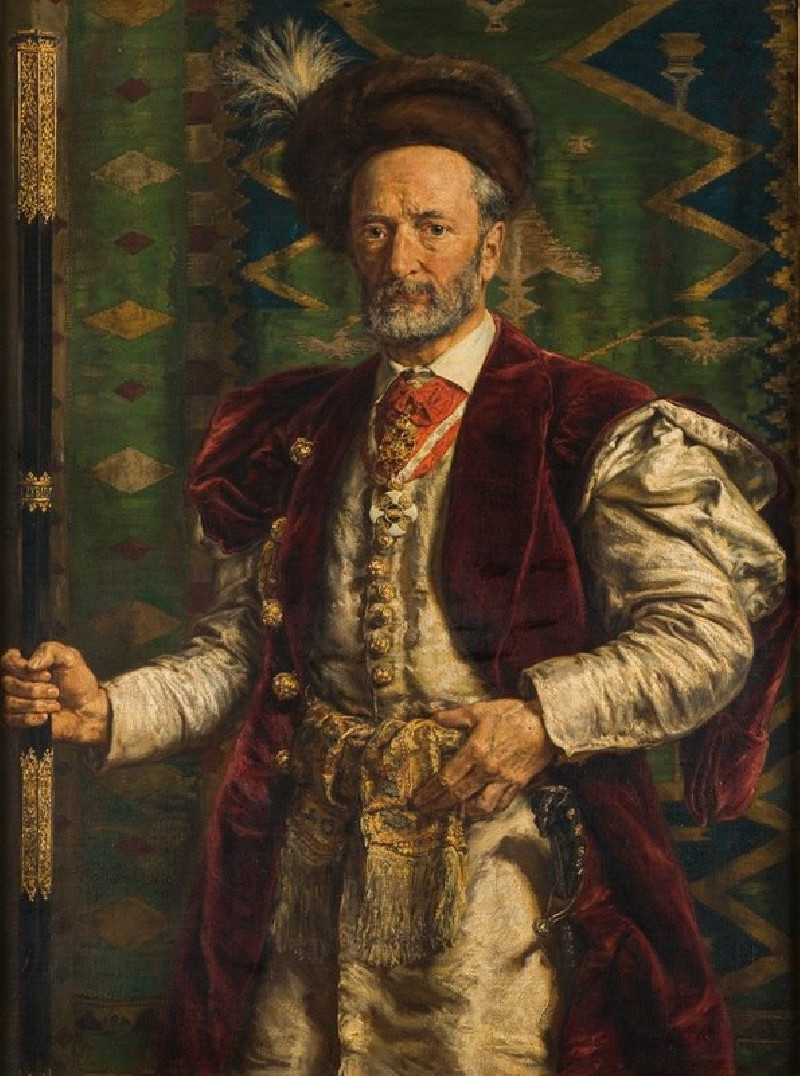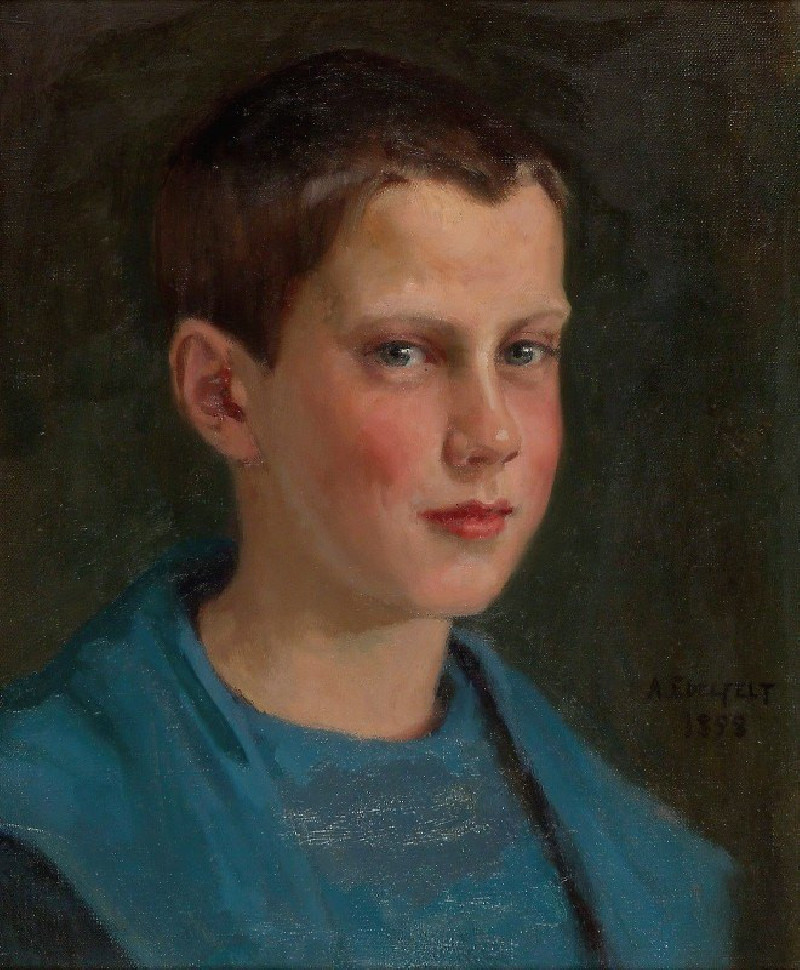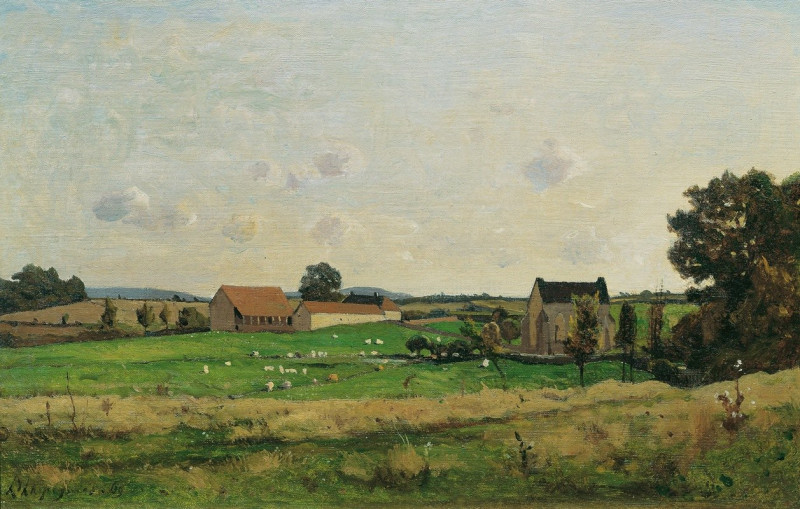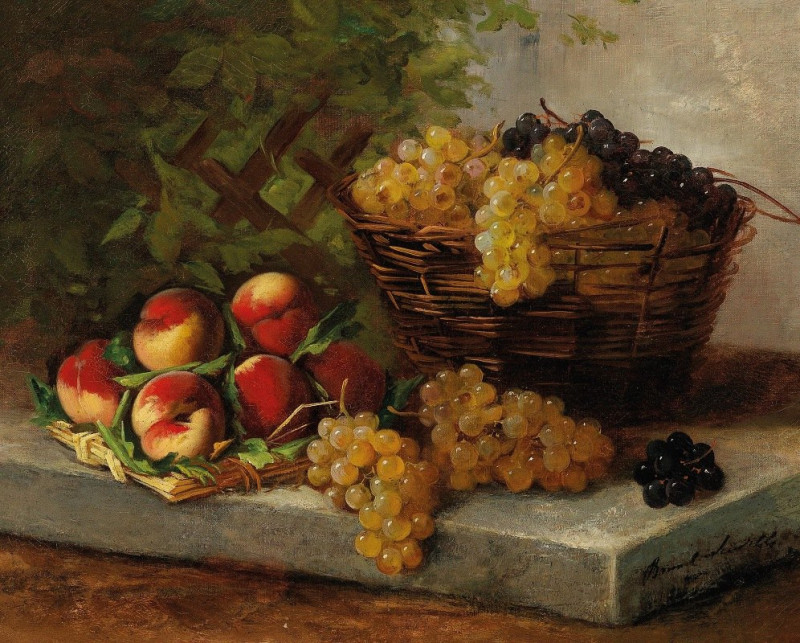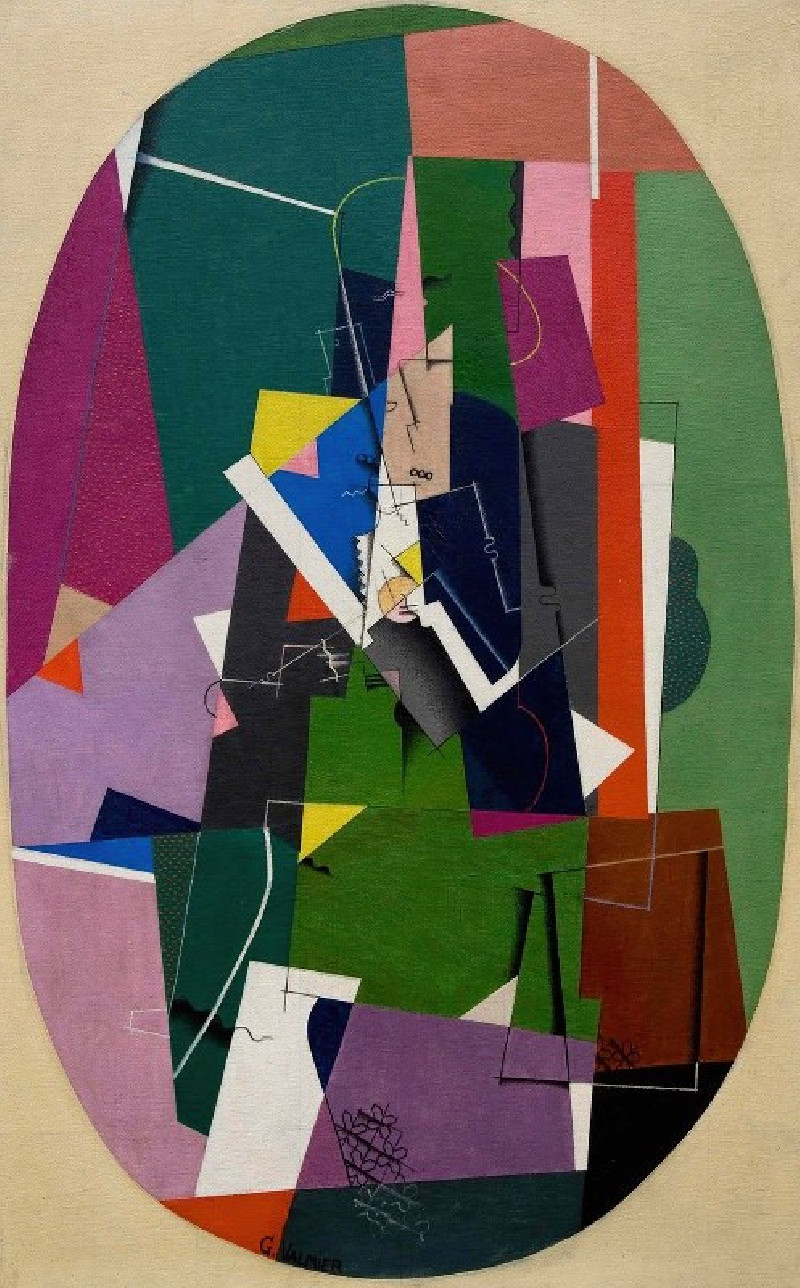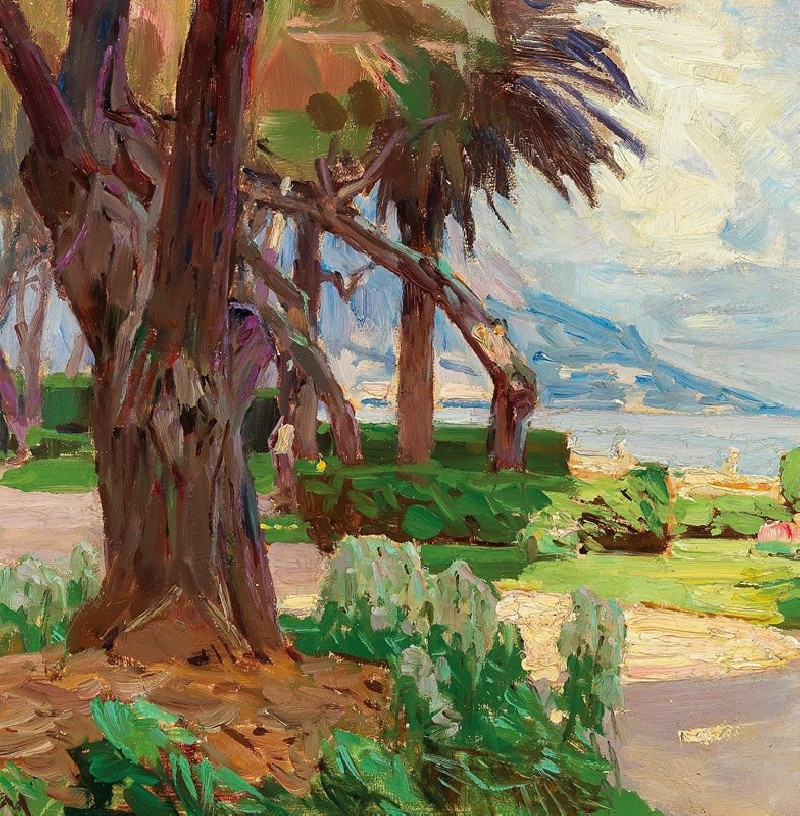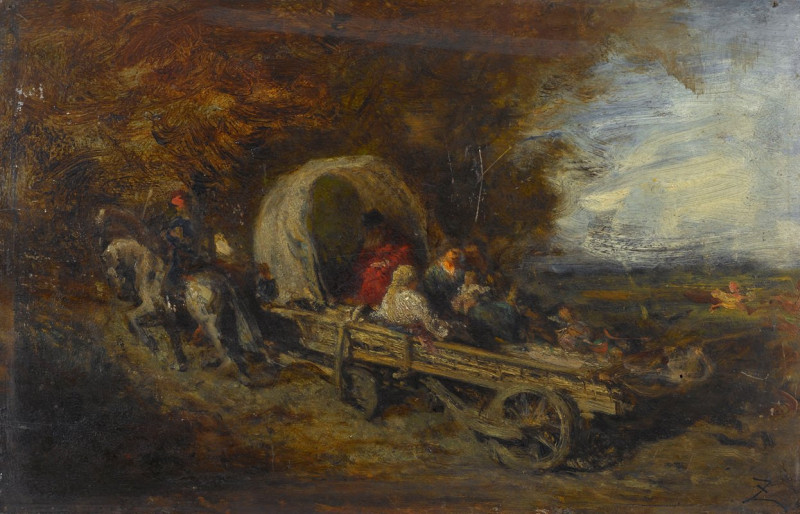Cour Et Écurie D’un Loueur (circa 1885-90)
Technique: Giclée quality print
Recommended by our customers
More about this artwork
Eugène Boudin's painting "Cour Et Écurie D’un Loueur" (circa 1885-90) offers a striking glimpse into the everyday life of a stableyard that rented out horses. This detailed scene, rich with energy and life, captures a quiet moment that contrasts the potential bustle such places typically experienced.In the foreground, a solitary white horse stands, tightly framed and harnessed, its presence calm yet commanding. This horse, mostly unattended, seems to be waiting, either for a ride or just resting after one. Behind it, the dark interior of the stable draws the viewer’s eye to a group of horses, painted predominantly in shades of brown. These horses are rendered with quick, expressive strokes, conveying a sense of depth and the crowded nature of the stable.The environment is brimming with rustic charm; scattered around are bits of hay, and a few pigeons pecking at the ground, adding a lively touch to the scene. Above the entrance, a sign reads “M. Rénault loueur de chevaux pour promenades”, indicating the business nature of the stable, specializing in horses for hire.Boudin’s use of light and shadow, particularly how the light spills onto the white horse and fades into the shadows of the stable, highlights his mastery in capturing the subtleties of different textures and atmospheres. His brushwork gives a sense of immediacy and fleetingness, akin to the casual snapshot of daily life during this period.This piece not only showcases Boudin’s skill in painting scenes from ordinary life but also his ability to evoke a narrative about the relationship between humans and animals within the societal fabric of the time.
Delivery
Returns
Eugène Louis Boudin (12 July 1824 – 8 August 1898) was one of the first French landscape painters to paint outdoors. Boudin was a marine painter, and expert in the rendering of all that goes upon the sea and along its shores. His pastels, summary and economic, garnered the splendid eulogy of Baudelaire; and Corot called him the "King of the skies".

